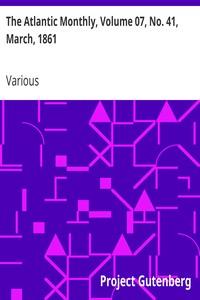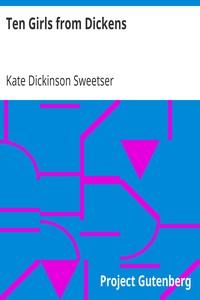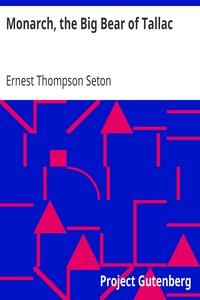|
|
Read this ebook for free! No credit card needed, absolutely nothing to pay.Words: 89577 in 20 pages
This is an ebook sharing website. You can read the uploaded ebooks for free here. No credit cards needed, nothing to pay. If you want to own a digital copy of the ebook, or want to read offline with your favorite ebook-reader, then you can choose to buy and download the ebook.

: The Atlantic Monthly Volume 07 No. 41 March 1861 A Magazine of Literature Art and Politics by Various - American periodicals The Atlantic Monthly@FreeBooksTue 06 Jun, 2023 THE ATLANTIC MONTHLY. A MAGAZINE OF LITERATURE, ART, AND POLITICS. GERMAN UNIVERSITIES. THE PROFESSORS. "Which of the German universities would be the best adapted to my purpose?" is the question of many an American student, who, having gone through the usual course in the United States, looks abroad for the completion of his scientific or liberal studies. Of G?ttingen and Heidelberg he will often have read and heard; the reputation of the comparatively new university of Berlin will not be unfamiliar to him; but of T?bingen, W?rzburg, Erlangen, Halle, or Bonn, even, he will perhaps know little more than the name. In the majority of the last-named places, foreigners, especially his own countrymen, are rare; none of his friends have studied there; they have followed the current, since the last century, and spent their time in G?ttingen or Heidelberg, perhaps a winter in Berlin. They have found these institutions good, and affording every facility for study; but would not Munich, or Leipzig, or Jena, or any other one of the twenty-six universities of Germany, better answer the purpose of many a student? Having now spent some time in four of the leading German universities, and contemplating a longer stay for the purpose of visiting others, the writer has thought that some general remarks might call attention to points often disregarded, and serve to give some insight into the nature of the institutions of learning of the country,--rather aiming to characterize the system of higher education as it now exists than to give detailed historical notices, including something of student-life, and the professors,--in fine, such observations as would not be likely to be made by a general tourist, and such as native writers deem it unnecessary to make, presupposing a knowledge of the facts in their own readers. The German universities are the culminating point of German culture. They concentrate within themselves the intellectual pith of the country. Dating their foundation as far back as the fourteenth century, as Prague, Vienna, and Heidelberg,--or established but of late years in the nineteenth, as Berlin, Bonn, and Munich,--they attract to themselves the mental strength of the land, forming a focus from which radiates, whether in Theology, Science, Literature, or Art, the new world of thought, which finds its way to remotest regions, often filtered and unacknowledged. They number among their professors the most distinguished men of the century, whether poets, philosophers, or divines. All who lay claim to authorship find in the lecture-room a firm stand and rank in society, as Government is ever ready to insure a life-position to distinguished scholars. To mention only a few examples of men who would scarcely be thought of in a professorial career,--Schiller was Professor of History in Jena, R?ckert Professor in Berlin, Uhland in T?bingen. The course is no light one the candidate has gone through,--nine or ten years of classical training, Latin the whole time, Greek the last six or seven years, Hebrew the last four, generally optional, though in many cases required at future examinations. The modern languages have not been neglected: French he has pursued seven years, English or Italian the last three or four. Beside all these, the elements of Philosophy, Moral and Natural, History, Mathematics, etc. In fine, the certificate of maturity would in most cases equal, in many surpass, what our colleges is styled the degree of A.M. Of course, the parallel must not be understood as existing with respect to many of the older institutions in the United States, which presuppose, in the entering freshman, a preparatory course of several years. The classical training so strictly required of natives who enter these high-schools is not so rigidly inquired into in the case of foreigners,--though in this respect the regulations differ in various states. In Prussia and generally, the passport is all-sufficient; but in W?rtemberg, a diploma or some certificate of former studies must be exhibited before admission. The officers of some of the universities, as T?bingen, for instance, are very particular in enforcing all the rules, inquiring of the applicant, whatever be his age or nationality, whether he has a written permission from his parents to study abroad and in their university, whether he has the money necessary to pay the debts he may contract, and such other minute questions as will strike an American especially as particularly impertinent. The precaution is carried so far, that, when no positive information is given as to means of subsistence, the letter of credit must be delivered into the hands of the beadle as security. Yet such little incidents are but slight annoyances at most, which a little good-humor and desire to conform to the habits and ways of doing of the country will remove. He who goes abroad always ready to bristle up against what does not exactly conform to his preconceived ideas of propriety, measuring and weighing all things with his own national weights and measures, will be continually making himself disagreeable and unhappy, and in the end profit little by his absence from home. "Lingus, tropus, ratio, numerus, tenor, angulus, astra." The year is divided into two terms, varying somewhat in different places. The summer session is the shorter of the two, lasting from near the middle of April till August, when the long vacation takes place. The winter semester usually commences in October and lasts till the latter part of March. As to the scope and variety of the lectures, it is unlimited, and varies yearly. In Berlin, during the winter semester of 1859-60, there were no less than three hundred and forty-six courses in all, besides the clinics, demonstrative and practical courses, philological exercises, and the like. These were divided as follows:-- Free books android app tbrJar TBR JAR Read Free books online gutenberg More posts by @FreeBooks
: The Case of Jennie Brice by Rinehart Mary Roberts Bracker M Leone Illustrator - Detective and mystery stories; Murder Fiction; Boardinghouses Fiction; Actors and actresses Fiction@FreeBooksTue 06 Jun, 2023

: Ten Girls from Dickens by Sweetser Kate Dickinson Williams George Alfred Illustrator - Dickens Charles 1812-1870 Characters Girls@FreeBooksTue 06 Jun, 2023
|
Terms of Use Stock Market News! © gutenberg.org.in2025 All Rights reserved.






